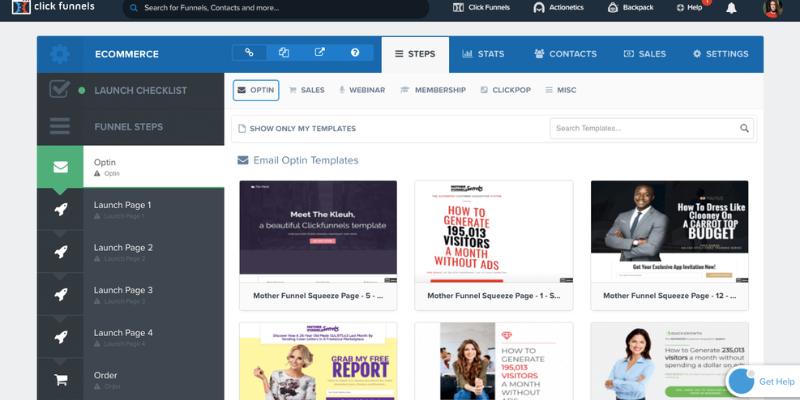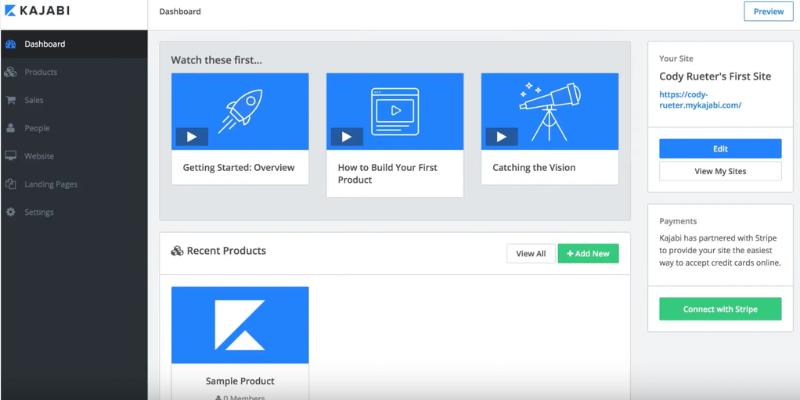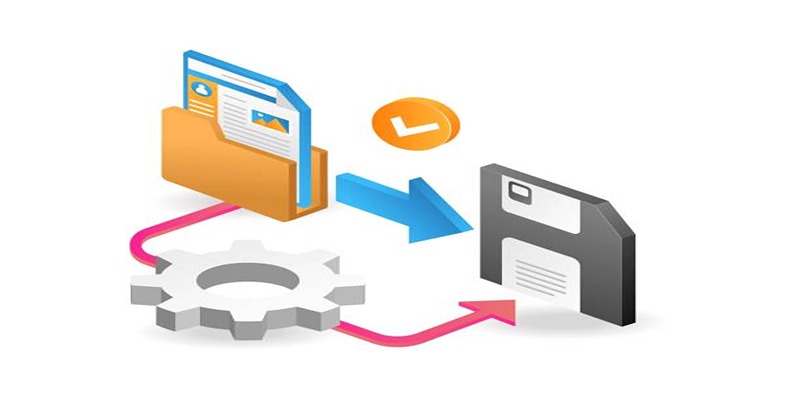ClickFunnels Vs. Kajabi: Which Tool Works Best in 2025?
Advertisement
Choosing the right digital platform can define your business success in 2025. ClickFunnels and Kajabi are two powerful tools for entrepreneurs, but each serves a different purpose. Whether you're building sales funnels or launching an online course, knowing the strengths and weaknesses of both can save time and boost profits. In this comparison, we explain features, pricing, usability, and more to help you decide.
Ready to find the perfect tool for your business? Let's explore the key differences between ClickFunnels and Kajabi.
ClickFunnels:
ClickFunnels is a powerful sales funnel builder created to drive conversions. It offers users a way to guide prospects through a custom journey, starting from awareness and ending with a purchase or sign-up. In 2025, ClickFunnels 2.0 will continue to be a go-to tool for entrepreneurs who want to focus on building funnels without needing a full-blown website.
What sets ClickFunnels apart is its laser-focused focus on conversions. It allows users to create landing pages, upsell paths, order bumps, and follow-up sequences with ease. The platform offers pre-built templates that cater to different industries, such as fitness, coaching, e-commerce, and SaaS. You can also integrate your email marketing system or use their native tool, Follow-Up Funnels, to keep in touch with leads.
ClickFunnels now includes smart AI assistance, real-time analytics, mobile previews, and split testing for better results. It's also more intuitive and beginner-friendly than ever, making it ideal for non-tech-savvy users.

Kajabi:
Kajabi positions itself as an "all-in-one business platform." It offers a website builder, online course creator, email marketing, membership features, podcast hosting, and customer relationship management (CRM). In 2025, Kajabi is especially favored by creators, coaches, and consultants who want to deliver a complete learning or community-based experience.
The strength of Kajabi lies in its ability to manage all aspects of a digital business from one dashboard. Whether launching a coaching program or offering courses, Kajabi makes delivering polished, branded experiences easy. The course builder includes modules, assessments, certifications, and drip scheduling. It also tracks student progress and engagement analytics.
What's new in Kajabi this year is its AI writing assistant for faster content creation, a more advanced website builder, and mobile-first tools to optimize user experience on phones and tablets. Plus, Kajabi's community feature helps brands build stronger customer loyalty.

ClickFunnels vs. Kajabi: Feature Comparison
While both platforms offer robust tools, they serve different core functions. ClickFunnels is best for marketing funnels, while Kajabi is ideal for course delivery and online communities.
ClickFunnels: This is the better choice if your goal is to drive traffic, collect leads, and push conversions. It shines in upsells, one-time offers (OTOs), and order form customization. Its sales-driven structure helps maximize every visitor's value.
Kajabi: On the other hand, it works better if your business depends on high-quality content delivery and long-term customer engagement. The built-in course tools, email campaigns, and website integration allow brand consistency and professional online experiences.
If we compare marketing automation, ClickFunnels gives users stronger triggers and funnel logic. Kajabi makes up for this with more visually appealing email campaigns and native video hosting without external tools.
Pricing in 2025:
ClickFunnels: Both platforms are premium tools when it comes to pricing. As of 2025, ClickFunnels' basic plan starts at around $97/month. The upgraded version with Follow-Up Funnels and advanced analytics costs approximately $197/month.
Kajabi: Kajabi, on the other hand, starts at $149/month. This includes website hosting, product creation, email marketing, and customer portals. Higher tiers offer features like affiliate marketing and advanced automation.
Although Kajabi's entry price is higher, it's important to note that it replaces many third-party apps. If you're paying separately for your email marketing, CRM, and website builder, Kajabi could save you money in the long run.
Ease of Use:
ClickFunnels: Both platforms are built for ease of use, but they cater to different skill sets. ClickFunnels is simple for marketers who want to deploy funnels fast. You can choose a template, tweak the content, and go live in minutes.
Kajabi: Kajabi offers a more polished experience with its drag-and-drop editor and user-friendly dashboard. While it may take a little longer to master all its features, the platform makes up for it with thorough tutorials and clean navigation.
For absolute beginners, Kajabi may feel more intuitive. For aggressive marketers who want full control over funnel logic and upsells, ClickFunnels feels more powerful.
Customer Support and Community:
ClickFunnels: Support is crucial when you're running an online business. ClickFunnels offers chat support, documentation, and an active Facebook group. Kajabi stands out with 24/7 live chat for all plans, a built-in support center, and expert webinars.
Kajabi: Kajabi's support has consistently received better ratings due to its hands-on approach and detailed onboarding. For those needing more guidance, Kajabi may be the safer bet.
SEO and Mobile Optimization:
ClickFunnels: Both platforms understand the importance of mobile optimization in 2025. ClickFunnels now supports mobile editing previews, and speed-focused page loading. Kajabi, being a full website builder, provides built-in SEO settings, custom domain integration, and mobile-responsive templates.
Kajabi: Kajabi may edge ahead slightly here, especially if your business depends heavily on search traffic and organic reach. It offers blog functionality, built-in sitemap generation, and fast page loading.
Pros and Cons:
ClickFunnels Pros:
- Powerful funnel automation.
- Strong upsells/downsells.
- Split testing for optimization.
- Focused on conversions.
ClickFunnels Cons:
- Limited course delivery options.
- It is not ideal for community-building.
- Higher cost for full features.
Kajabi Pros:
- All-in-one platform.
- Excellent for course creation.
- Strong community features.
- Sleek and branded design.
Kajabi Cons:
- Higher starting price
- Less advanced funnel options
- There is a slight learning curve for beginners.
Which Tool Works Best for You in 2025?
Choosing between ClickFunnels and Kajabi depends on your business goals. If you're primarily selling through marketing funnels and want to push leads toward conversion fast, ClickFunnels will serve you best. Its features are laser-focused on moving prospects down the sales pipeline.
If your strength lies in creating content, teaching online, and building communities, Kajabi is the better option. It offers everything you need to run a digital business under one roof—from landing pages to email campaigns to student analytics.
It's not about which tool is better—it's about which is better for you.
Conclusion
Both ClickFunnels and Kajabi offer unique benefits tailored to different business models. ClickFunnels is ideal for those focused on high-converting sales funnels, while Kajabi suits digital creators who want an all-in-one course and marketing platform. Your final choice depends on your goals, content style, and growth strategy.
Take action today—explore both platforms with a free trial to see which aligns with your business vision and workflow. Making an informed decision now can lead to greater efficiency, higher sales, and long-term success.
Advertisement
Related Articles

Top SEO Content Optimization Tools to Improve Your Ranking

How Digital Twin and Simulation Tools Are Transforming Industries

Top Sony Vegas Plugins to Enhance Your Video Editing Experience

Best Free Video Editing Software for Beginners in 2025

Mastering Automated Workflows with Zapier-Like Integrations

Revolutionize Your Workflow with These AI Productivity Tools in 2025

SurveyMonkey Vs. Google Forms: Which Survey Tool is Best for 2025?

5 AI Writing Generators That Will Transform the Way You Write

Best AI Image Editors to Transform Your Photos in Minutes

The Top AI Text Generators Every Writer and Creator Should Know

Top 6 Media Converter Ultimate Tools for Quick File Conversion

 knacksnews
knacksnews